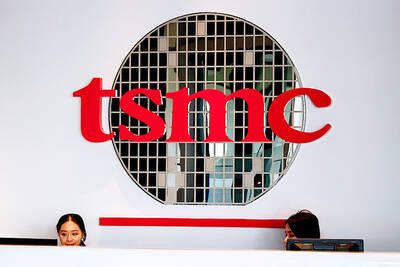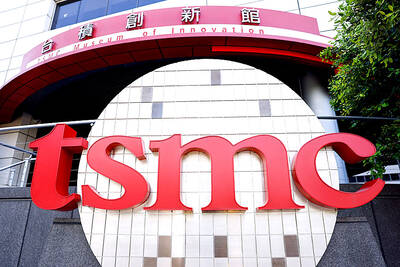The nation’s foreign-exchange reserves last month hit a new high, due in part to an increase in returns in the central bank’s management of the assets during the month.
A stronger euro, boosted by the reduction in fears of a populist victory in the French presidential election, raised the value of Taiwan’s euro-denominated reserves when converted into US dollars, the bank said in a statement on Friday.
The reserve rose US$900 million from the end of March to US$438.43 billion, the bank said.
Department of Foreign Exchange Director-General Harry Yen (顏輝煌) said the euro last month gained about 1.8 percent against the US dollar.
Analysts said that continued foreign fund inflows into the region, including Taiwan, amid eased geopolitical tensions also helped to pave the way for a new high in forex reserves.
However, the central bank said that there were no signs that foreign investors had moved funds into Taiwan to speculate on the local foreign exchange market.
Foreign institutional investors recorded net fund inflows of US$1.27 billion last month, the Financial Supervisory Commission said.
The fund inflows resulted in a net purchase of US$1.16 billion worth of shares in local equities last month, Yen said.
As of the end of last month, foreign investors held positions on local equities and bonds worth US$353.8 billion, an increase of US$7.8 billion from March, local equities and bonds., the central bank said.
That accounted for 81 percent of Taiwan’s total forex reserves, up 2 percentage points from the end of March, the central bank said.
The foreign inflows have caused the New Taiwan dollar to appreciate against the US dollar. The NT dollar on Friday closed at NT$30.182 against the greenback and in the previous few sessions, it breached NT$30 before falling back.
Since the beginning of this year, the NT dollar has gained almost 6.5 percent against the US dollar on the back of fund inflows.
Yen said the central bank is watching closely how the US Federal Reserve adjusts its monetary policy after the Fed on Wednesday said that it expected the US economy to grow at a fast pace for the rest of the year which boosted market expectations that the US central bank plans to raise its key interest rates in the next policymaking meeting next month.
A rate hike in the US would likely make the US dollar stronger, which could prompt foreign investors to move funds out of non-US dollar-denominated assets.

Chizuko Kimura has become the first female sushi chef in the world to win a Michelin star, fulfilling a promise she made to her dying husband to continue his legacy. The 54-year-old Japanese chef regained the Michelin star her late husband, Shunei Kimura, won three years ago for their Sushi Shunei restaurant in Paris. For Shunei Kimura, the star was a dream come true. However, the joy was short-lived. He died from cancer just three months later in June 2022. He was 65. The following year, the restaurant in the heart of Montmartre lost its star rating. Chizuko Kimura insisted that the new star is still down

While China’s leaders use their economic and political might to fight US President Donald Trump’s trade war “to the end,” its army of social media soldiers are embarking on a more humorous campaign online. Trump’s tariff blitz has seen Washington and Beijing impose eye-watering duties on imports from the other, fanning a standoff between the economic superpowers that has sparked global recession fears and sent markets into a tailspin. Trump says his policy is a response to years of being “ripped off” by other countries and aims to bring manufacturing to the US, forcing companies to employ US workers. However, China’s online warriors

Taiwan Semiconductor Manufacturing Co (TSMC, 台積電) listed the challenges of ensuring export control compliance by its customers, months after the company’s artificial intelligence (AI) silicon was found to have flowed to US-sanctioned Huawei Technologies Co (華為) via intermediaries. “TSMC’s role in the semiconductor supply chain inherently limits its visibility and information available to it regarding the downstream use or user of final products that incorporate semiconductors manufactured by it,” the Hsinchu-based company said in its latest annual report released on Friday. The world’s largest contract chipmaker said the constraint impedes its ability to prevent unintended end-uses of its semiconductors, as well

Taiwan Semiconductor Manufacturing Co (TSMC, 台積電) expects steady growth this year despite global economic uncertainty due to continued momentum from tech trends such as 5G, artificial intelligence (AI) and high-performance computing (HPC) applications. In the company’s annual shareholders’ report released on Thursday, TSMC chairman and CEO C.C. Wei (魏哲家) said the company is well-positioned to meet market demand with its differentiated technology platforms. The company’s 2-nanometer process is on track for volume production in the second half of this year, while its next-generation nanosheet-based A16 process, aimed at HPC applications, is scheduled for mass production late next year, Wei said. Advanced technologies —